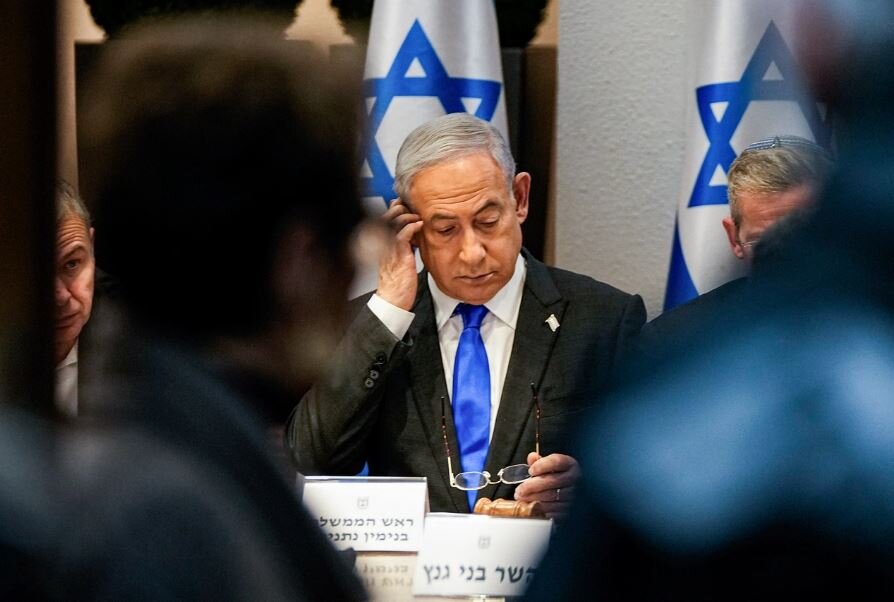Israel: A threat that jeopardizes US negotiations with Iran

MADRID – For over a month now, Iran and the United States have been holding indirect talks to explore the possibility of striking a new deal on Iran’s nuclear program. Despite years of mutual distrust, increasing sanctions, and episodes of tension, both sides have shown renewed willingness to reach an understanding that would ease tensions and strengthen stability in a region long plagued by recurring conflicts.
However, these diplomatic efforts face a major obstacle in Israel’s stance, which has ramped up its rhetoric and threats against Iran, clearly determined to block any agreement recognizing Tehran’s sovereign right to a peaceful nuclear program. The U.S. administration also voices concern that any military action by Tel Aviv could trigger a regional escalation with unpredictable and far-reaching consequences.
For Tehran, these negotiations represent a legitimate opportunity to advance toward a fair deal acknowledging its right to develop nuclear energy for peaceful purposes—a right backed by the Nuclear Non-Proliferation Treaty (NPT), of which Iran is a signatory. Yet this process is systematically threatened by an Israeli strategy that, far from seeking diplomatic solutions, relies on constant confrontation and the exclusive use of forceful language.
This pattern is not new. During the negotiation of the JCPOA, the 2015 nuclear deal between Iran, the U.S., the P5+1 group, and the European Union, then Israeli Prime Minister Benjamin Netanyahu declared that “all dangers are small and insignificant compared to the danger posed by Iran’s nuclearization.” This statement sums up Israel’s position: a total rejection of any agreement allowing Iran to maintain a peaceful nuclear program, coupled with a relentless campaign to sabotage it.
The fifth round of indirect talks between Iran and the U.S., held on May 23, unfolded amid reports from major media citing informed U.S. and Israeli sources warning that Israel was preparing for a possible strike on Iran’s nuclear facilities. Meanwhile, several Israeli officials reiterated and intensified their threats—an ongoing pattern revealing a strategy based on pressure and intimidation aimed at undermining any diplomatic path.
Israel’s proclaimed priority of preventing Iran from acquiring nuclear weapons has long served to justify a policy of constant pressure, threats, and destabilizing actions in the region. Under the pretext of protecting its national security, the Israeli regime has systematically denied Iran’s sovereign right to peaceful scientific and technological development, recognized internationally. Iran, as an NPT signatory subject to strict international oversight, has repeatedly shown a willingness to negotiate and accept verification mechanisms. By contrast, Israel—never a signatory to the treaty and possessing an undeclared nuclear arsenal—operates under a logic of exceptionalism that weakens the global nonproliferation architecture and undermines regional stability.
The options discussed in Israeli power circles—from imposing a deal on Iran to military strikes—reveal a deeply belligerent strategy with no genuine interest in diplomacy or regional stability. Beyond realistic proposals, these alternatives express a desire to create hegemony in West Asia through isolation and relentless pressure on Tehran, systematically backed by the threat of force.
Under the rhetoric of an “integrated strategic objective,” what is actually pursued is an aggressive, sustained campaign—military, political, and economic—intended to weaken the Iranian state, limit its legitimate influence in the region, and subject it to constant pressure. This logic, besides raising ethical dilemmas, heightens collective insecurity and perpetuates a cycle of confrontation that has already exacted a heavy toll on the region.
From Israel’s perspective, the ideal solution would be the total dismantling of Iran’s nuclear program—the so-called “Libyan model.” This formula implies Iran’s complete subordination, a demand Tehran has firmly and consistently rejected. Despite attempts to portray Iran’s program as a threat, Iran has maintained its peaceful nature and cooperated with international verification bodies on multiple occasions.
For Iran, the demand for dismantlement is a red line beyond the strategic—it’s a matter of national dignity and sovereignty. Leader of the Islamic Revolution Ayatollah Seyyed Ali Khamenei has reiterated that the nuclear debate is merely an excuse to pressure, isolate, and weaken the Islamic Republic with the ultimate goal of promoting political change in Tehran.
This stance is backed by historical precedents. The case of former Libyan leader Muammar Gaddafi, who agreed in 2003 to dismantle his nuclear program in exchange for international normalization only to be overthrown years later with Western intervention, stands as a clear warning to Iran about the risks of surrendering without full guarantees respecting its sovereignty.
President Trump’s decision to open a negotiating channel with Iran has unsettled Israel, where fears exist that the U.S. might not support a unilateral Israeli strike against Iran’s nuclear sites, especially given the risk of regional escalation. Strategically, an Israeli attack without active U.S. backing would have limited impact, possibly delaying Iran’s nuclear development by only about a year. Israel’s increasing military operations don’t guarantee success in such a complex context; on the contrary, unilateral action could accelerate Tehran’s program and complicate diplomatic cooperation with Washington, jeopardizing joint efforts to reach a deal.
In this scenario, if no agreement is reached to limit Iran’s nuclear progress and military force becomes an option, Israel would be forced to coordinate with the U.S., though such coordination does not necessarily guarantee Washington’s active participation in any strike.
Nonetheless, Israel’s current stance reveals the limits of its strategy, marked by a clear dependence on U.S. backing to sustain its aggressive policy. This dynamic shows that rather than seeking a diplomatic solution to end years of tensions, Israel is firmly betting on a military path, endangering not only regional stability but also the real possibility of a negotiated agreement that respects Iran’s sovereign right to a peaceful nuclear program.
Therefore, at a time when diplomacy is showing promising signs, the international community must stay vigilant to prevent Israel’s agenda—focused on confrontation and force, from destroying the opportunity to advance toward a negotiated solution that guarantees security and stability in the region.
Leave a Comment